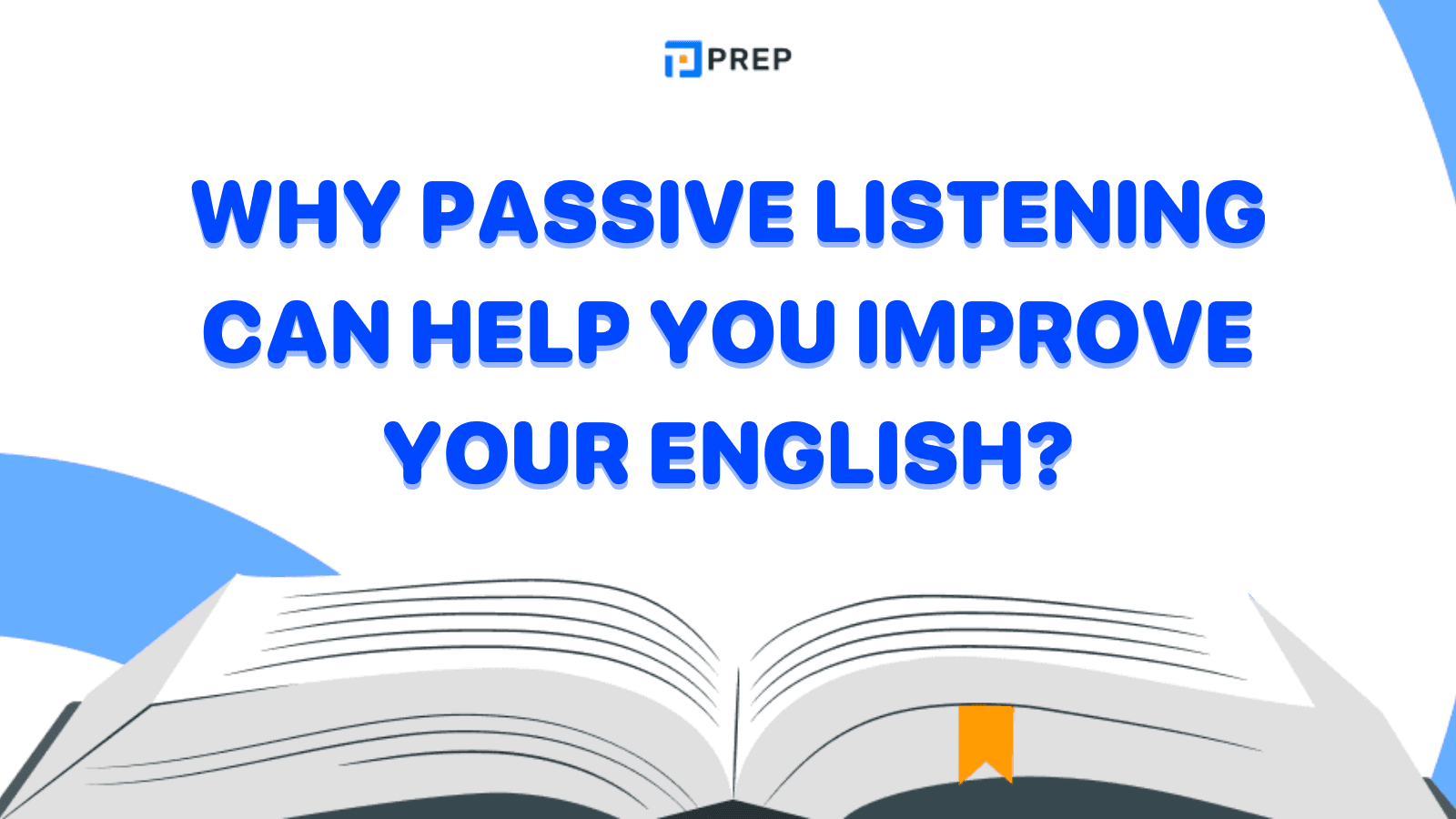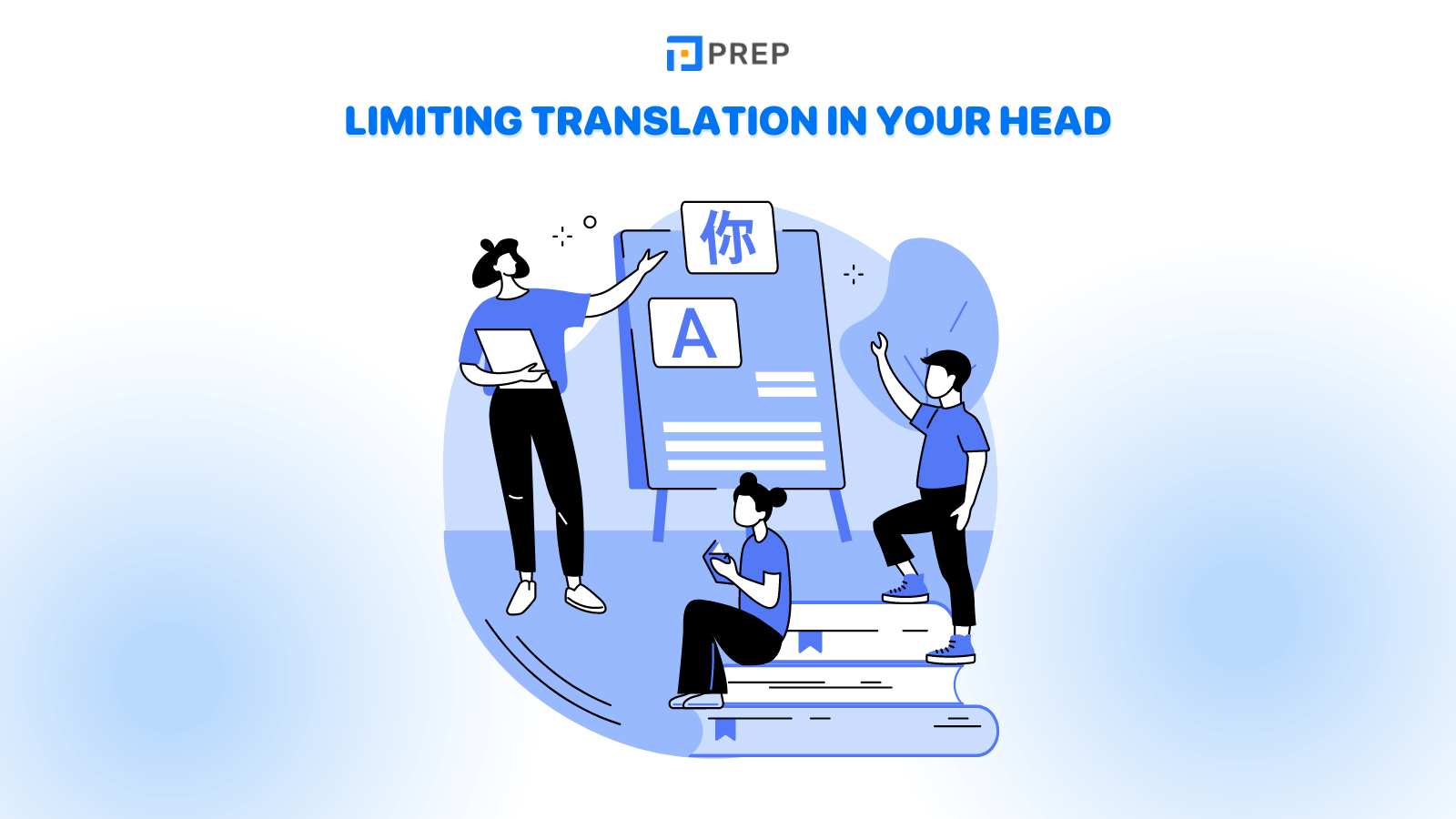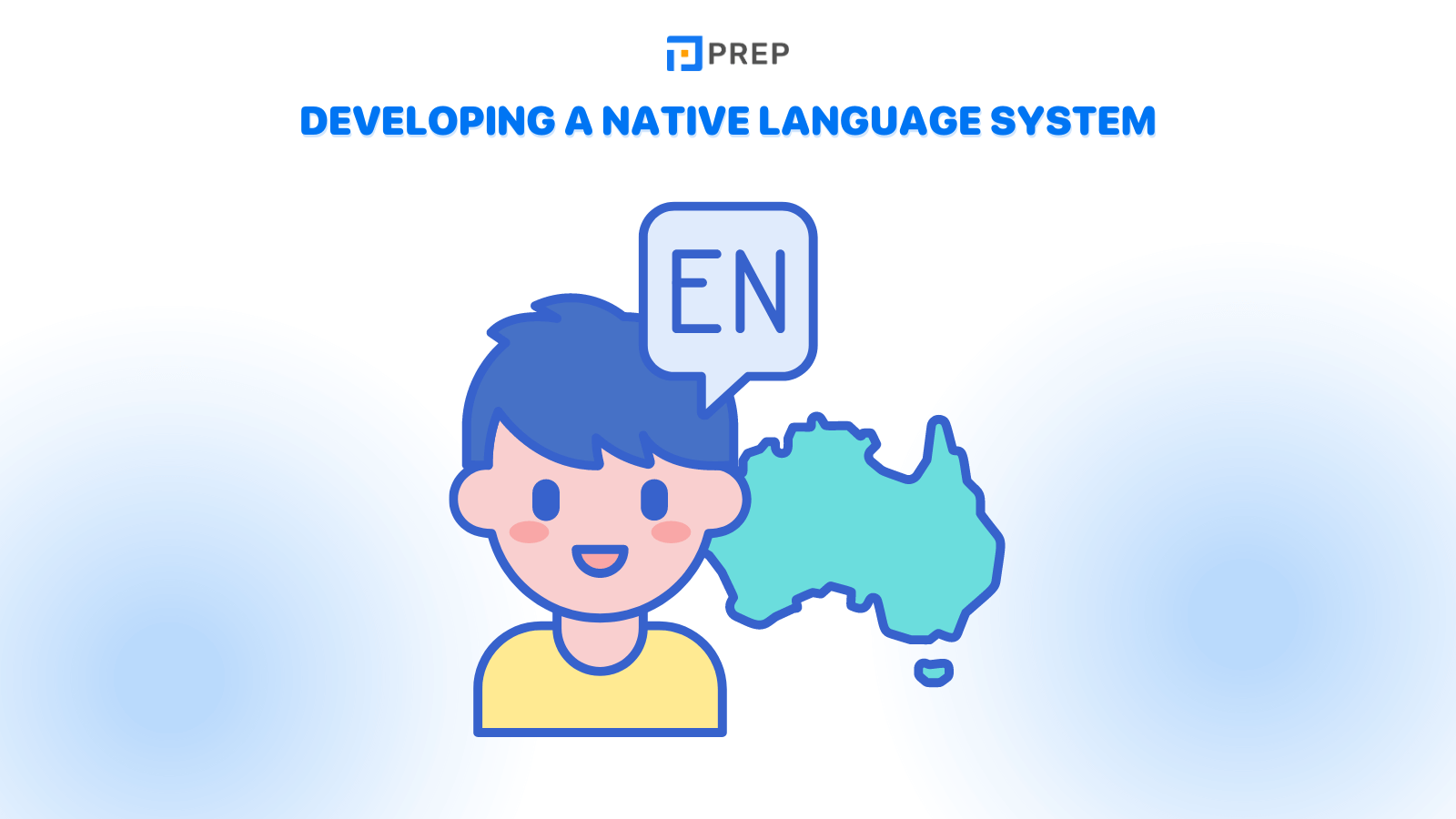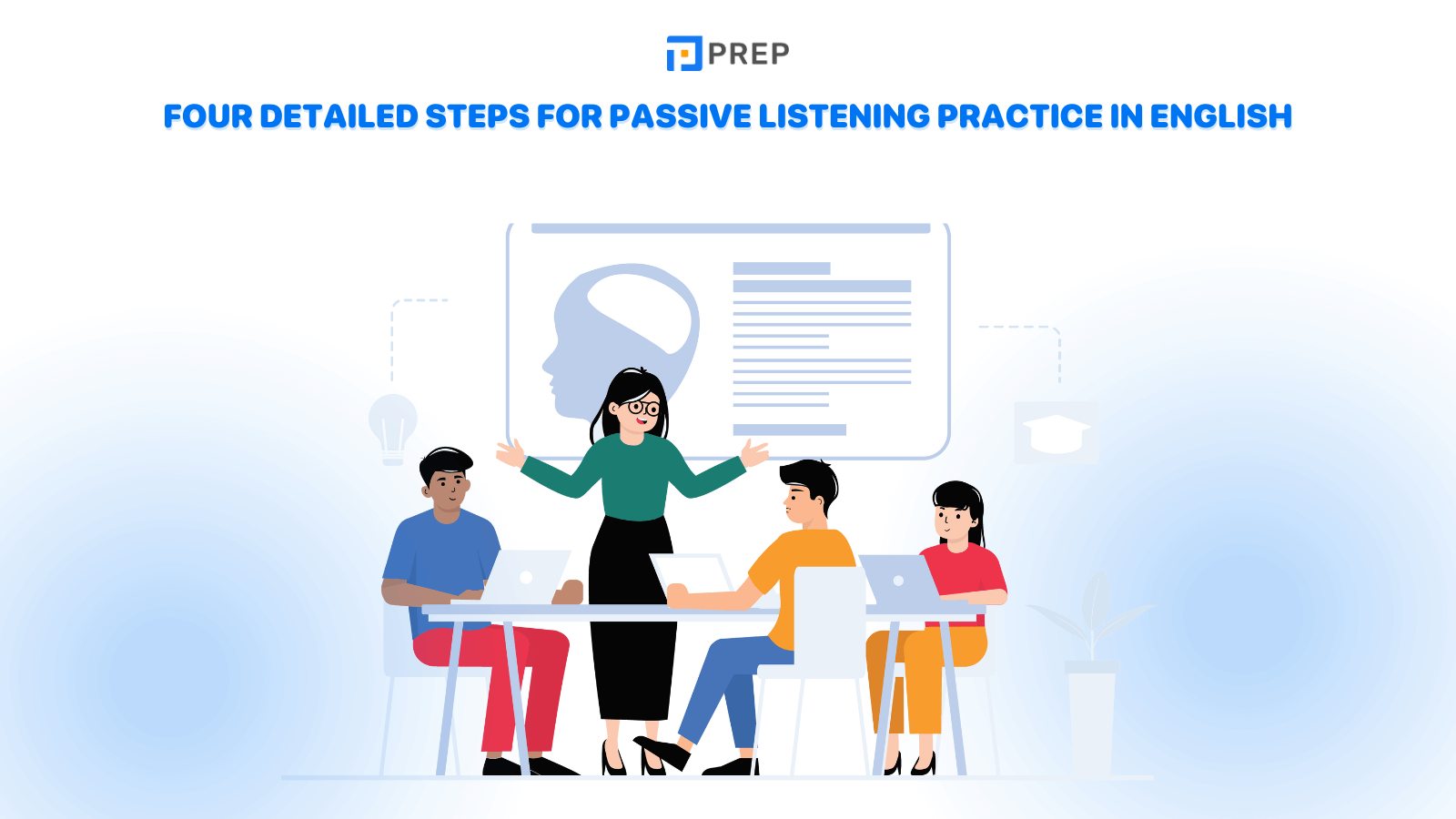Why passive listening can help you improve your English?
Have you ever found yourself recognizing most of the words in an audio clip but still struggling to follow the overall meaning? This is a common issue faced by language learners and is often caused by insufficient exposure to English in everyday contexts. One solution to this problem is passive listening—a simple yet effective method to reinforce your language skills. In this article, we’ll explore what passive listening is, how it works, and how you can make it part of your daily routine to enhance your English proficiency.

I. Passive listening definition
To understand passive listening, it’s helpful to contrast it with active listening. While active listening involves focused attention and intention to understand every detail, passive listening means listening without a specific purpose—allowing the language to play in the background while you go about your day.
The goal isn’t to catch every word but to immerse yourself in the language effortlessly. Although passive listening alone won’t dramatically improve your comprehension skills, it serves as a valuable supplement to more structured learning methods.
II. Distinguish between active and passive listening
To make the most of your listening practice, it's important to understand how passive and active listening differ—not only in technique but also in purpose.
|
Difference between active and passive listening |
Passive listening |
Active listening |
|
Definition |
Passive listening refers to listening without focusing your full attention on understanding every word or detail. It usually takes place in the background while you're doing other activities such as commuting, cooking, or exercising. |
Active listening requires your full attention and mental engagement. You deliberately focus on the content, try to understand the main ideas and details, and may take notes or pause to review unfamiliar words or phrases. |
|
Purpose |
Its main goal is to expose your brain to the sounds, rhythm, and structure of English in a relaxed and effortless manner. Over time, this exposure helps you become more comfortable with the language and develops your ability to recognize patterns naturally. |
The aim is to improve comprehension, vocabulary, and critical thinking by interacting directly with the material. It’s particularly useful for exam preparation, such as the IELTS Listening test. |
|
Examples |
|
|
Which one should you use: active listening vs passive listening?
Both methods serve different purposes and are most effective when used together.
-
Use active listening for targeted skill development and test preparation.
-
Use passive listening to create an immersive environment that supports your language acquisition over time.
In short, think of passive listening as building the foundation, and active listening as strengthening the structure of your language ability.
III. Benefits of passive listening
1. Limiting the habit of translating in your head
Many learners struggle with mentally translating English into their native language before understanding or responding. This delay often causes them to lose track of conversations. Passive listening exposes your brain to the rhythm and structure of English consistently, helping you develop a natural reflex to understand meaning directly—without relying on mental translation.

2. Developing a native language system
By regularly listening to English podcasts, music, or videos—even in the background—you begin to recognize patterns, intonation, and natural pauses used by native speakers. Over time, this “background noise” becomes familiar and helps form an internalized sense of how the language flows, much like how children acquire their first language.

IV. How to practice passive listening effectively
Here’s a four-step approach to make passive listening work for you:

1. Step 1: Choose the right listening sources
Go for authentic content. Select podcasts, YouTube videos, or radio shows created by native speakers. Don’t limit yourself to just one accent—explore different varieties of English to improve your overall adaptability.
Make sure it matches your level.
-
If you understand 60–80% of the content, it’s appropriate for passive listening.
-
If you only grasp 40–50%, the material may be too advanced and could lead to frustration or discouragement.
2. Step 2: Pick topics that genuinely interest you
Whether you're into fashion, technology, or celebrity interviews, choose topics and speakers you enjoy. Listening to people you admire—like Emma Watson or content from channels like Vogue—can make the process more engaging and motivating.
3. Step 3: Learn key vocabulary in advance
Before diving into a new topic, spend a few minutes reviewing common vocabulary related to the subject. This simple step will make it easier to recognize words while listening and gradually transition from passive to more active listening.
4. Step 4: Repeat, Repeat, Repeat
Repetition is key. Listening to the same clip multiple times can reveal new words, phrases, or ideas you missed the first time. For instance, you might understand 60% of a video on your first attempt, but by the third or fourth listen, your comprehension improves significantly.
Pro Tip: Avoid switching to a new video every day. Stick with one until you’re confident with the material to avoid feeling overwhelmed or discouraged.
V. Conclusion
Passive listening is not a standalone solution but a powerful companion to your overall English learning journey. It helps you build familiarity with spoken English in a low-pressure, natural way.
If you're aiming for a high IELTS Listening score, try incorporating passive listening into your daily routine. And if you're seeking a structured learning path that covers all four IELTS skills with flexibility, explore PREP’s online IELTS preparation course for a complete and convenient study experience.

Hi I'm Chloe, and I am currently serving as an Product Content Administrator at Prep Education. With over five years of experience in independent online IELTS study and exam preparation, I am confident in my ability to support learners in achieving their highest possible scores.
Comment
Premium content
View allPersonalized roadmap
Most read












